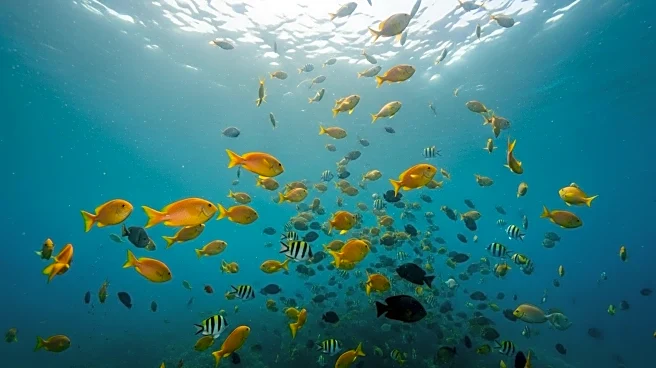What is the story about?
What's Happening?
The World Trade Organization (WTO) has implemented the first part of the Agreement on Fisheries Subsidies, aimed at ending subsidies for illegal, unreported, and unregulated fishing. This agreement is legally binding for two-thirds of WTO member countries and marks a significant step towards sustainable fishing practices. The agreement requires transparency in subsidy programs and empowers countries to demand clarity on foreign vessels operating in their waters. The Fish Fund has been launched to support developing countries in monitoring and compliance efforts.
Why It's Important?
The WTO agreement represents a major milestone in global efforts to combat overfishing and protect marine ecosystems. By curbing harmful subsidies, the agreement aims to allow fish populations to recover, benefiting coastal communities reliant on fishing for their livelihoods. The agreement also sets a precedent for future multilateral treaties focused on environmental sustainability, aligning with the UN's Sustainable Development Goals.
What's Next?
WTO members are negotiating additional rules, known as Fish 2, to further address subsidies contributing to overcapacity and overfishing. The upcoming WTO Ministerial Conference could play a critical role in advancing these negotiations. Strong leadership from major economies and coalitions will be essential to maintain momentum and achieve further reform.
Beyond the Headlines
The agreement offers a unique opportunity for regions like Latin America to implement responsible marine resource management. It encourages transparency and regional commitment, potentially redirecting financial resources towards sustainable fishing practices. The agreement's implications for China, the world's largest fisheries nation, highlight the need for enhanced transparency and reform in subsidy policies.















